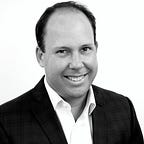Vaccines, Hope & Moving America Forward
Wildfires, hurricanes, flooding — these are natural disasters that we, sadly, expect to hit our country in some form each year. Last year, a new kind of disaster became part of our collective lexicon as COVID-19 touched communities throughout the U.S.
According to The Brookings Institute research, the death rate is significantly higher for Black and Hispanic/Latino communities, and the less affluent are less likely to be working from home or having others shop for them, increasing their pandemic risk in general.
In other words, low-income, people of color are bearing the brunt of the pandemic. This same group also shoulders more burdens after natural disasters. We’ve written before about how FEMA could take more equitable approaches after disasters, having seen opportunities in our fifteen years of recovery work.
When FEMA’s involvement in nationwide vaccination sites became clear, they established a civil rights advisory group to help make sure vaccination efforts reached those who needed them most. Last week, four SBP AmeriCorps members left their current operating sites to support FEMA in their commitment to vaccine equity at a state-run mass vaccination site in Jacksonville, Florida. As part of the AmeriCorps Disaster Service Unit in our regular work, our members are uniquely equipped to manage and support in environments like this. Equity is at the heart of what we do on a day-to-day basis.
Across the country where we operate, our 240 AmeriCorps members are used to pivoting quickly, having had to find a way this last pandemic year to care for our clients during and after natural disasters and keep long-term recovery projects moving forward efficiently and safely.
With support from partners like Farmers Insurance, our AmeriCorps program also allows us to quickly deploy our members after a disaster to begin recovery work. Or, as in the case of our FEMA support, to meet this new, urgent disaster need.
Our members were able to hit the ground running to help the state connect with Jacksonville’s most socially vulnerable communities using strategies we deploy after a disaster. One being to find, vet and collaborate with local partners.
We connected with churches and community centers hosting pop-up lunches to see if they would be willing to share flyers or host an info table. Businesses like Dollar General let us set up a QR code sign so people could learn more, ask questions or sign up for a vaccine appointment right away. We used the CDC’s vulnerability index to map out the most at-risk neighborhoods and developed a canvassing packet so state volunteers could better counter misinformation and make it as easy as possible for people to sign up for a vaccine.
Jacksonville’s vaccination site was one of several meant to help close the racial gap in Florida resident vaccinations. Our team is building systems for tracking data around who is getting vaccinated and identifying the myths influencing decisions not to get the vaccine. They are coming up with new ideas for reaching people — yard signs, interstate signs — and countering misinformation in person and online.
This week, the Jacksonville site celebrated their 30,000th vaccination. The recipient, accompanied by the friend who convinced her to do it, cried — both from the relief of knowing what this shot means for her and from facing her fear of needles. Our team encouraged her through the process and orchestrated a celebration.
As soon as the Navy medical team administered the vaccine, the room erupted in applause.
After a year of so much illness, fear and loss a vaccination is a sign of hope, one that should be appropriately celebrated. SBP AmeriCorps member Olivia Parker designed the Jacksonville selfie station so that those recently vaccinated can celebrate without jeopardizing their privacy or anyone else.
While other vaccination sites in the U.S. have adopted selfie stations for this purpose, Olivia put a small New Orleans twist on hers, taking inspiration from what she watched in New Orleans as COVID patients left hospitals to the tunes of live (socially distant) brass bands. In Jacksonville, the recently vaccinated can walk out of the tent to the tunes of “Here Comes the Sun” (Beatles), “I Feel Good” (James Brown) and “Ain’t No Mountain High Enough” (Marvin Gaye).
She has taken the traditions of a typical SBP Welcome Home party and adapted it for a new need — recognizing the power of celebrating a moment of safe return.
Our members, along with Navy teams administering shots, CNAs doing intake, state organizers and FEMA, are part of a service group helping move America closer to a country that can gather freely — with family, friends and strangers — once again. We are grateful for their service.
